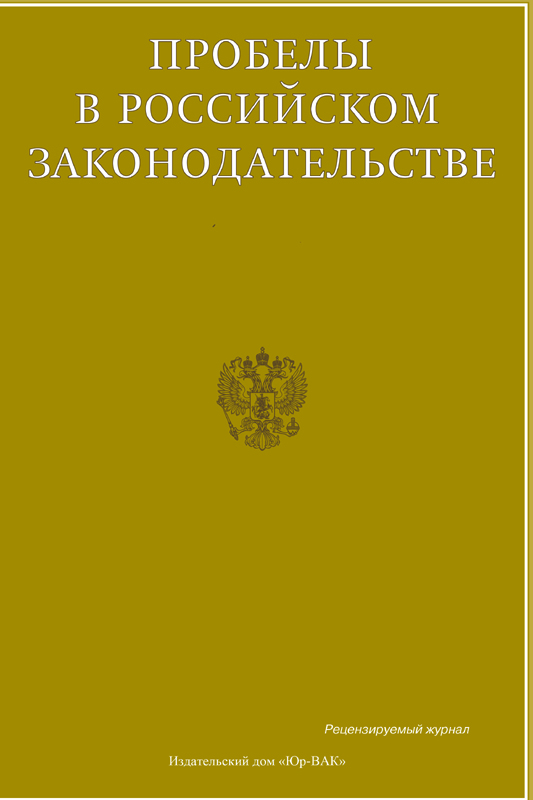The Use of Interactive Forms of Training in Physical Training Classes with Students of Educational Organizations of the Ministry of Internal Affairs of Russia
- Авторлар: Krymshokalov A.Z.1
-
Мекемелер:
- North Caucasus Institute for Advanced Studies (branch) of the Krasnodar University of the Ministry of Internal Affairs of Russia
- Шығарылым: Том 15, № 4 (2022)
- Беттер: 74-78
- Бөлім: Articles
- URL: https://journals.eco-vector.com/2072-3164/article/view/531554
- ID: 531554
Дәйексөз келтіру
Аннотация
The purpose of this study is to study aspects of the use of interactive learning technologies in physical training classes to improve the effectiveness of the educational and training process. The introduction of interactive forms of training in the process of physical training is carried out through several stages, passing each of which the level of mastery of wrestling techniques and special motor skills should be significantly improved, as well as the general physical fitness of the listeners. The teachers of the Department of Physical Training face a difficult task that they are obliged to solve, namely, the formation of special motor skills, physical strength and endurance, health promotion and the development of fighting techniques that will be used by them in the process of ensuring law and order. Students, in turn, demonstrate readiness to study educational material, as well as the ability and readiness to master combat techniques of fighting and special motor skills, in order to perform forcible detention and apply self-defense techniques and ensure the personal and safety of citizens. These factors, as well as the weak level of physical training of recruits, puts the teaching staff in an ambiguous situation, and to solve these problems they have to optimize the learning process by various methods and develop methods for mastering the necessary techniques by students. It is established that the need for the use of interactive forms of training is due to their focus on providing advanced training of students in the context of the use of physical force and combat techniques of wrestling. The justifications given in this study for the use of interactive forms of learning determine their effectiveness in the process of forming motor skills and abilities in physical training classes. Taking into account these facts increases the chances of meeting the needs of law enforcement agencies who want to see highly qualified specialists in all aspects of their work in their ranks.
Толық мәтін
Авторлар туралы
Ashamaz Krymshokalov
North Caucasus Institute for Advanced Studies (branch) of the Krasnodar University of the Ministry of Internal Affairs of Russia
Email: islam-2604@mail.ru
police major, Senior Lecturer of the Department of Physical Training Nalchik, Russia
Әдебиет тізімі
- Gorbyleva A. A. Interactive learning in physical culture classes // Materials of the VII International Student Scientific Conference "Student Scientific Forum". URL: https://scienceforum.ru/2015/article/2015015600 (accessed: 04/21/2022)
- Ivannikov S.V. On the issue of the use of interactive learning tools in physical training classes for cadets of educational organizations of the Ministry of Internal Affairs of Russia // Bulletin of Economic Security. 2019. No. 2. pp. 339-341.
- Interactive learning technologies as a means of forming professional competencies among cadets of educational organizations of the Ministry of Internal Affairs of Russia. Monograph / Maltseva T. V., Ulyanova I. V., Mikhailova V. K. [et al.]. Ryazan: Publishing house Individual entrepreneur Konyakhin Alexander Viktorovich, 2018. 260 p.
- Kanukoev A.M. Psychological problems of adaptation of students of educational organizations of the Ministry of Internal Affairs of Russia to physical exertion // Gaps in Russian legislation. 2020. Vol. 13. No. 4. pp. 173-176.
- Maletin S. V. Independent physical training of cadets and students of educational organizations of the Ministry of Internal Affairs of Russia // Actual problems of combating crimes and other offenses. 2020. No.20-2. pp. 220-221.
- Polevshchikov M. M., Afonshin V. E., Rozhentsov V. V. Technology of interactive training // Bulletin of the Maikop State Technological University. 2014. No. 1. pp. 70-74.
- The use of interactive learning tools in physical training classes in educational organizations of the Ministry of Internal Affairs of Russia / Pachev A.V., Proskurin S. M., Smolyakov E. V. [et al.] // Bulletin of the Krasnodar University of the Ministry of Internal Affairs of Russia. 2017. No. 1 (35). pp. 191-194.
- Russkova Yu. N. Interactive technologies of vocational training as a means of forming professional competencies among cadets and students of educational organizations // Innovations in education.2019. No. 8. pp. 89-96.
- Kanukoev A.M. Improving the effectiveness of the use of interactive forms of education in physical training classes with students of educational organizations of the Ministry of Internal Affairs of Russia // Gaps in Russian legislation. 2021. Vol. 14. No. 4. pp. 100-103.
- Cherkesov R.M., Kushkhov H.L. Application of innovative technologies and teaching methods in the process of physical training of students of educational organizations of the Ministry of Internal Affairs of Russia // Gaps in Russian legislation. 2021. Vol. 14. No. 4. pp. 95-99.
- Yaroslavsky M. A. Goals and means of functional training // Physical education and sport: topical issues of theory and practice. Collection of materials of the All-Russian scientific and practical conference. Rostov n/a.: Rostov Law Institute of the Ministry of Internal Affairs of the Russian Federation, 2018. pp. 299-304.
Қосымша файлдар








